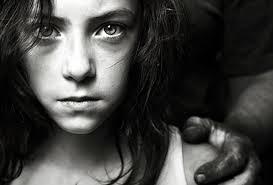
According to Save the Children, sexual exploitation refers to “the abuse of a position of vulnerability, differential power, or trust for sexual purposes; this includes profiting monetarily, socially or politically from the exploitation of another as well as personal sexual gratification.”
Examples include child prostitution, trafficking of children for sexual abuse and exploitation, child pornography, sexual slavery.
Article 34 of the UN Convention on the Rights of the Child (CRC) stipulates that “States Parties undertake to protect the child from all forms of sexual exploitation and sexual abuse. For these purposes, States Parties shall in particular take all appropriate national, bilateral and multilateral measures to prevent:
(a) The inducement or coercion of a child to engage in any unlawful sexual activity;
(b) The exploitative use of children in prostitution or other unlawful sexual practices;
(c) The exploitative use of children in pornographic performances and materials.
Article 19 of the CRC asserts children’s right to protection “from all forms of physical or mental violence, injury and abuse, neglect or negligent treatment, maltreatment or exploitation, including sexual abuse, while in the care of parent(s), legal guardian(s) or any other person who has care of the child.”
The Optional Protocol on the sale of children, child prostitution and child pornography also addresses the issue of sexual exploitation in respect of State’s obligations.
What can be done about it?
The World Congress III Against the Sexual Exploitation of Children took place in Brazil in 2008. T he outcome document – the ‘Rio Declaration’ – includes a call for action in the following areas:
- The ratification of international and regional instruments
- Addressing different forms of exploitation, as well as ‘new scenarios’ by, for example, criminalising child pornography that includes virtual images, and combatting the use of technology to facilitate sexual exploitation in general. It also includes addressing the specific areas of child prostitution, travel and tourism and trafficking.
- Strengthening legal frameworks and enforcement of the law
- Integrating policies and National Plans of Action
- Strengthening international cooperation
- Undertaking social responsibility initiatives
- Monitoring
The Committee on the Rights of the Child draws attention to the issue of sexual exploitation in its Concluding Observations. For example, in 2010 it called on Japan to “strengthen efforts to investigate cases and prosecute perpetrators of child sexual exploitation and provide counselling and other recovery assistance to victims of sexual exploitation.” In 2008, it chastised Georgia for, among other concerns, the “paucity of information provided with regard to sexual exploitation and prostitution of children.” And in 2009, the Committee found that in Mozambique “there are no specific provisions in the criminal law and procedures for the hearing of child victims of crime, including sexual exploitation and sexual abuse.”
Source: Crin
 FR
FR EN
EN AR
AR








